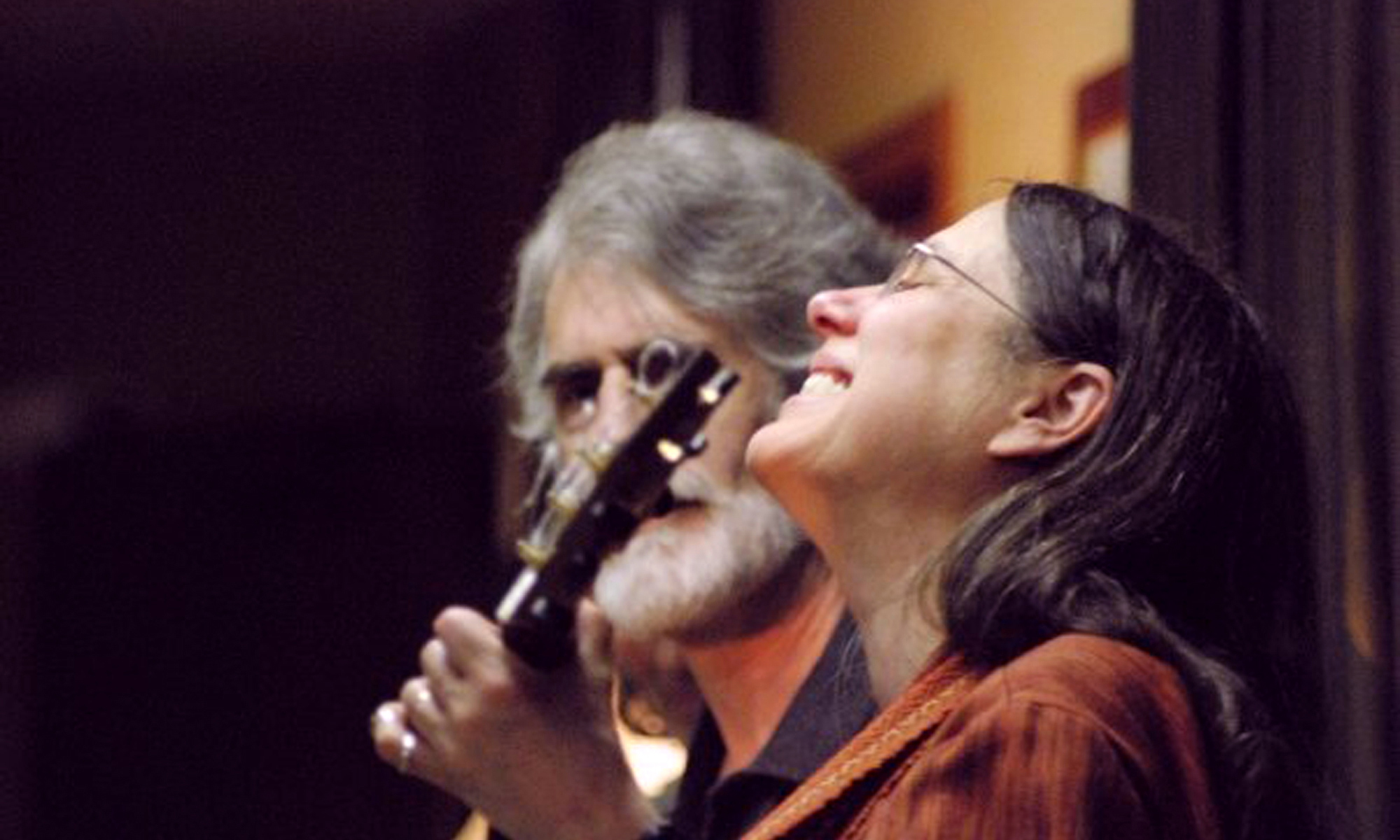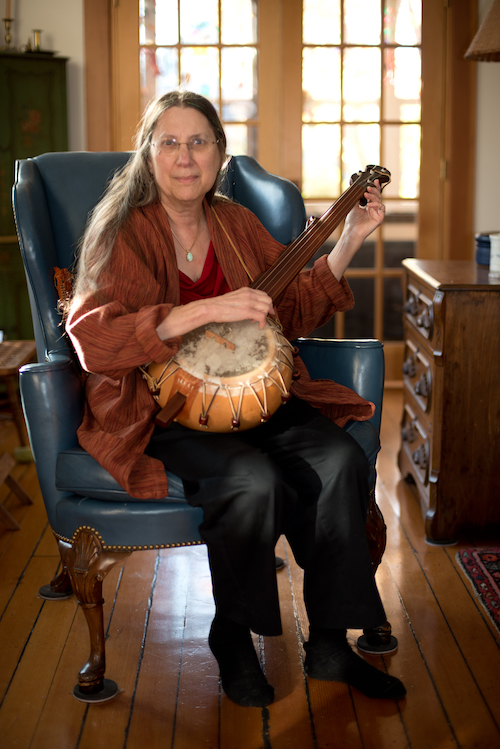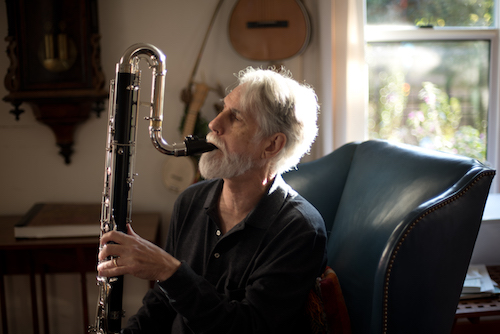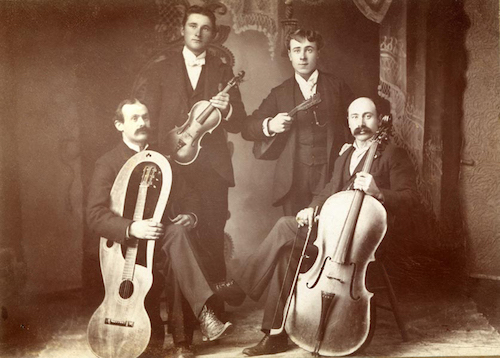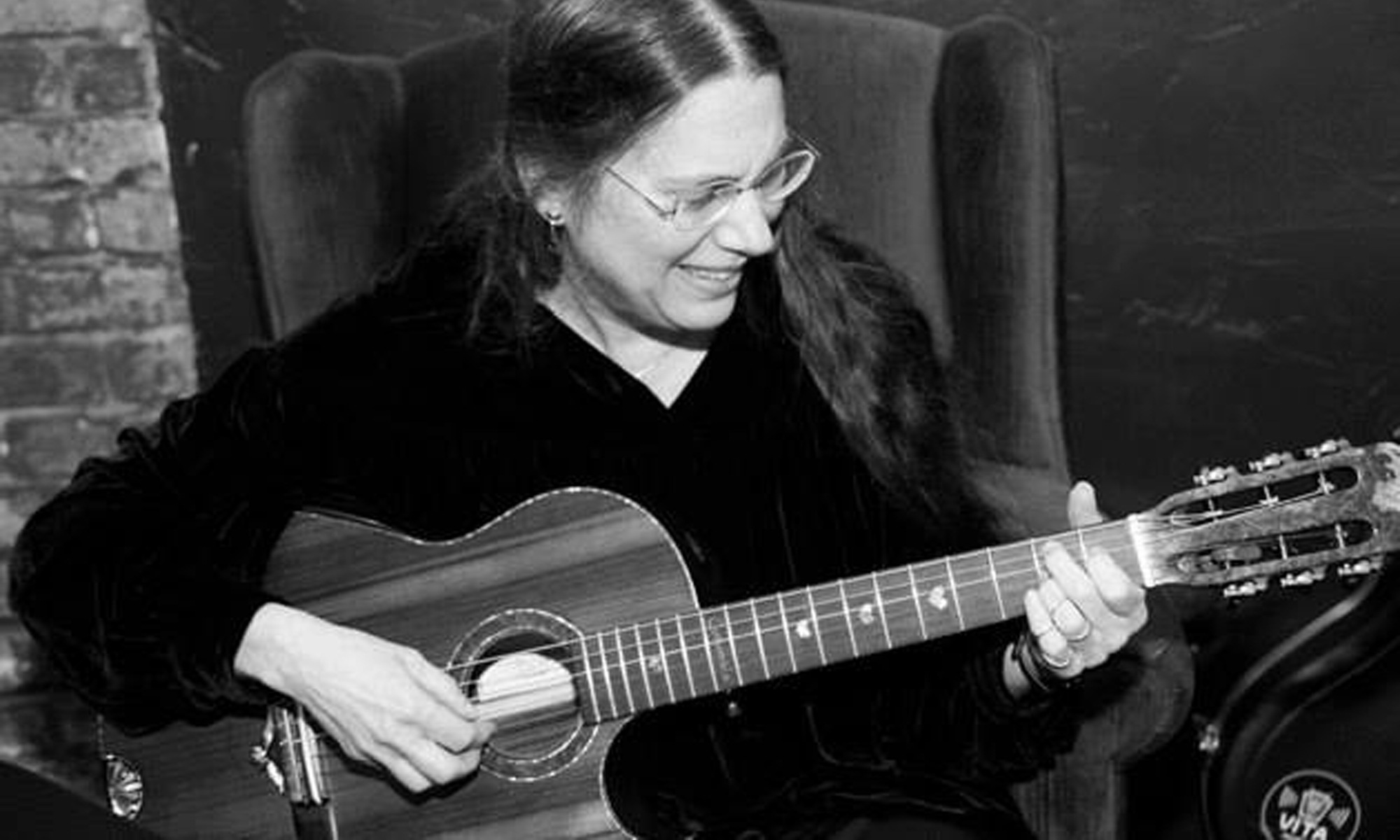Chord choices and accompaniment can transform the meaning of words. Oh Suzannah is my icon for that. It matters what chords I use, to help other people (and my own heart) understand just what I mean.
When I was a kid I loved the song – as bouncy and exciting as a ride in the back seat of an old Plymouth in a hurry on a gravel road with potholes. I had a clear image of Suzannah. She was a chubby white girl with freckles, maybe 8 years old, with her hair tied back in pigtails so tightly that it pulled the skin at the corners of her eyes. She was running down the hill with those braids flapping in the wind, with crumbs (and even some chunks) of buckwheat cake flying in all directions. The nonsense was just nonsense. The song was just fun.
When I was about 19, I heard James Taylor sing Susannah on his first album. The world just stopped. I wanted to burst into tears. I want to now, just remembering. He had something NEW to say about that song, at least for me. All those major 7ths and plaintive suspensions. The tenderness.
Suddenly, I got it! Susannah was black, and BEAUTIFUL. Slender and sad and worried, REAL, going about her daily life but thinking always of the singer (lover? husband? father? sister? mother? child?) sold away, lost, and longing for her too. She’s coming down that hill, and they both know where every bush and tree on that hill is, just where the little flowers poke their heads up in the springtime. It’s home.And she has the taste of home on her lips, and on her breath. Did they grow that buckwheat?
It rained all night the day I left, the weather it was dry.
A break in the summer drought; everything washed clean.
The sun so hot, I froze to death.
No matter what the weather does, I can’t shake the cold terror at the bone about what might have happened to you while I’ve been gone all this time. And of what might happen to me as I try again today to find my way home past all these strangers.
Suzannah, don’t you cry.
All I can offer is that I’m coming as fast as I can. I’m sneaking my way across the land, hiding behind this banjo, pretending just to be a harmless musician. Amusing the white people, looking cute. With a subtext for my own people to hear. Maybe someone has news of her. And, I want to imagine her smiling, not with those helpless tears trickling down her cheeks, as they do down mine.
And then there’s this verse, which wasn’t on James Taylor’s album, but which is in the original:
When I get to New Orleans I’ll look all around
And when I find Susannah, I’m gonna fall right on the ground
But if I do not find her, you know I’ll surely die
And when I’m dead and in my grave,
Susannah don’t you cry.
A wise man I used to know (Harvey Jackins) once said that people need love two ways. That we need to be loved as deeply and urgently as we need water. We’ll dry up and die without it. But, needing to give love, that’s like air.
Thanks for giving so much, and for receiving…
Another wise man I know, John Knowles, told me that someday, when we have truly solved racism, then we will go back, together, and look at Stephen Foster and his music. Right now that history is still deeply tangled with the vicious racism of so many of the original lyrics. I’ve learned not to sing many of his songs in nursing homes because it can trigger some elders to launch into the minstrel song versions, which are so damaging to our humanity. It’s the past we have inherited, and we need to face it. I hope we can find ways to pull the jewels out of the dross. It’s going to take many long conversations with all the stakeholders. I love the work Rhiannon Giddens has been doing in that direction.
I don’t have answers, but I think the best education comes from seeking useful questions, rather than from learning “correct” answers.
Love
Fl!p Breskin
